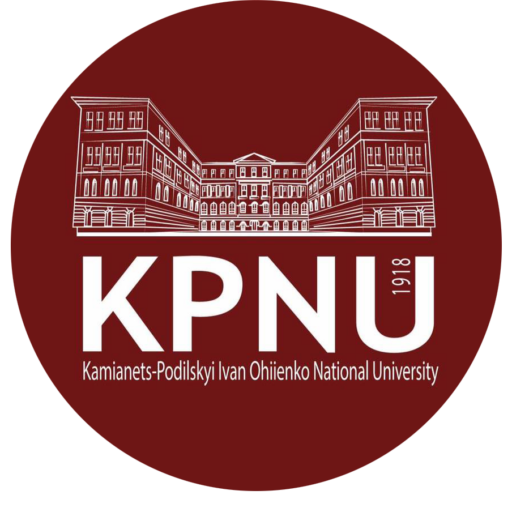Alina Sivko
Khmelnytskyi National University, Khmelnytskyi
Scientific supervisor: Dmytroshkin D.E.
TRANSLATION OF NEOLOGISMS (BASED ON HARRY POTTER BY J.K. ROWLING)
A neologism is word, term, or phrase which has been recently created (“coined”) — often to apply to new concepts, or to reshape older terms in newer language form. Neologisms are especially useful in identifying inventions, new phenomena, or old ideas which have taken on a new cultural context [1].
The object of research is structural types and ways of translation of author’s neologisms.
The subject of research is author’s neologisms used in Harry Potter by J.K. Rowling.
Our primary aim is to suggest new, creative ways of translation of author’s neologisms based on word-formation means not widely used in Ukrainian.
Neologisms tend to occur more often in cultures which are rapidly changing, and also in situations where there is easy and fast propagation of information. They are often created by combining existing words (see compound noun and adjective) or by giving words new and unique suffixes or prefixes. Those which are portmanteaus are shortened. Neologisms can also be created through abbreviation or acronym, by intentionally rhyming with existing words, or simply through playing with sounds.
Since neologisms are often not fixed in the dictionaries, the way of their translation may vary. It takes to choose the best of the suggested ways of translation of neologisms. All researchers agree that translation of neologism calls for a thorough analysis of the structure of new lexical units and ways of their translation. According Komisarov and Retsker [2], the basic ways to translation neologisms are:
- fixed adequate equivalent;
- transcoding (transliteration or transcribing);
- word-for-word translation (calque);
- descriptive translation.
Taking into account the ways of neologisms formation, Vera Zabotkina distinguishes their following types:
- Phonological neologisms
Phonological neologisms are formed by the combination of original individual sounds. Such peculiar sound combinations are also called “artificial” neologisms.
Floo Powder (летючий порох) is a substance used to travel through fireplace network – пилоліт;
Рensieve (сито спогадів) is an object used to store and view thoughts – спогадничка (спогади + скарбника).
- Syntactic neologisms(subdivided into morphological and phraseological)
Morphological neologisms may be created by:
1) Affixation (formation of words by adding derivational affixes to different types of bases)
The verb degnome (позбутися гномів) – обезгномити, and the noun degnoming (процес вигнання гномів) –розгном have the prefix de -, which means separation or deprivation.
2) Compound words (two or more words linked together to produce a word with a new meaning)
Time-turner is a subject that allows you to return to the recent past (to turn time) – часоворот (already existing translation);
3) Abbreviated compounding (the abbreviated forms of words with a phonemic distinction by one sound becoming identical with another)
Remembrall a magical ball-reminder that fills with red fog in case you forget something (нагадування + кулька) – нагадулька;
4) Shortenings/abreviations (a shortened form of a word or phrase, by any method. It may consist of a group of letters, or words taken from the full version of the word or phrase)
N.E.W.T.s (Nastily Exhausting Wizarding Tests) – Н.О.Ч.І. – Незімкнені Очі Через Іспити;
- Semantic neologisms (new meanings in already existing words)
Howler (Ревун) is a letter containing claims, reprimands, etc., when the envelope is opened, the remembrall publicly voices its content, and then it self-destructs. The word “Howler” has other meanings in English: mourner; something tactless, beyond a good tone; blunder – криколист;
Muggle – a simple human being (literal meaning – simpleton) – простолюд;
Puking pastilles – блювончики (блювати + батончик).
Thus, we may conclude that translators may create compound words of abbreviated form that express the same lexical meaning to render author’s neologisms. The analyzed novel is a good example of how creative translators may be when translating neologisms. The suggested method may be applied not only to author’s neologism but to abbreviated compound words in other fields. We consider this field of analysis to be perspective for future research in translation studies.
ЛІТЕРАТУРА
- Алексенко С.В. Англійські неологізми та переклад оказіональних слів. Збірник наукових праць Актуальні проблеми філології та перекладознавства. 2004. С. 11-115.
- Дмитрошкін Д.Е. Переклад спортивних неологізмів та де термінологізованих лексичних одиниць із стилістичним та гумористичним забарвленням. Актуальні проблеми сучасної філології та культурології: постмодерністська парадигма. Матеріали VI Міжнародної науково-практичної заочної Інтернет-конференції (15 травня 2018 р.). Хмельницький: Хмельницька гуманітарно-педагогічна академія, 2019. С. 215-221
- Комиссаров В.Н., Рецкер Я.И., Тархов В.И. Пособие по переводу с английского языка на русский. Часть І. Лексико-фразеологические основы перевода. Москва: Издательство литературы на иностранных языках, 1986. 175 с.
